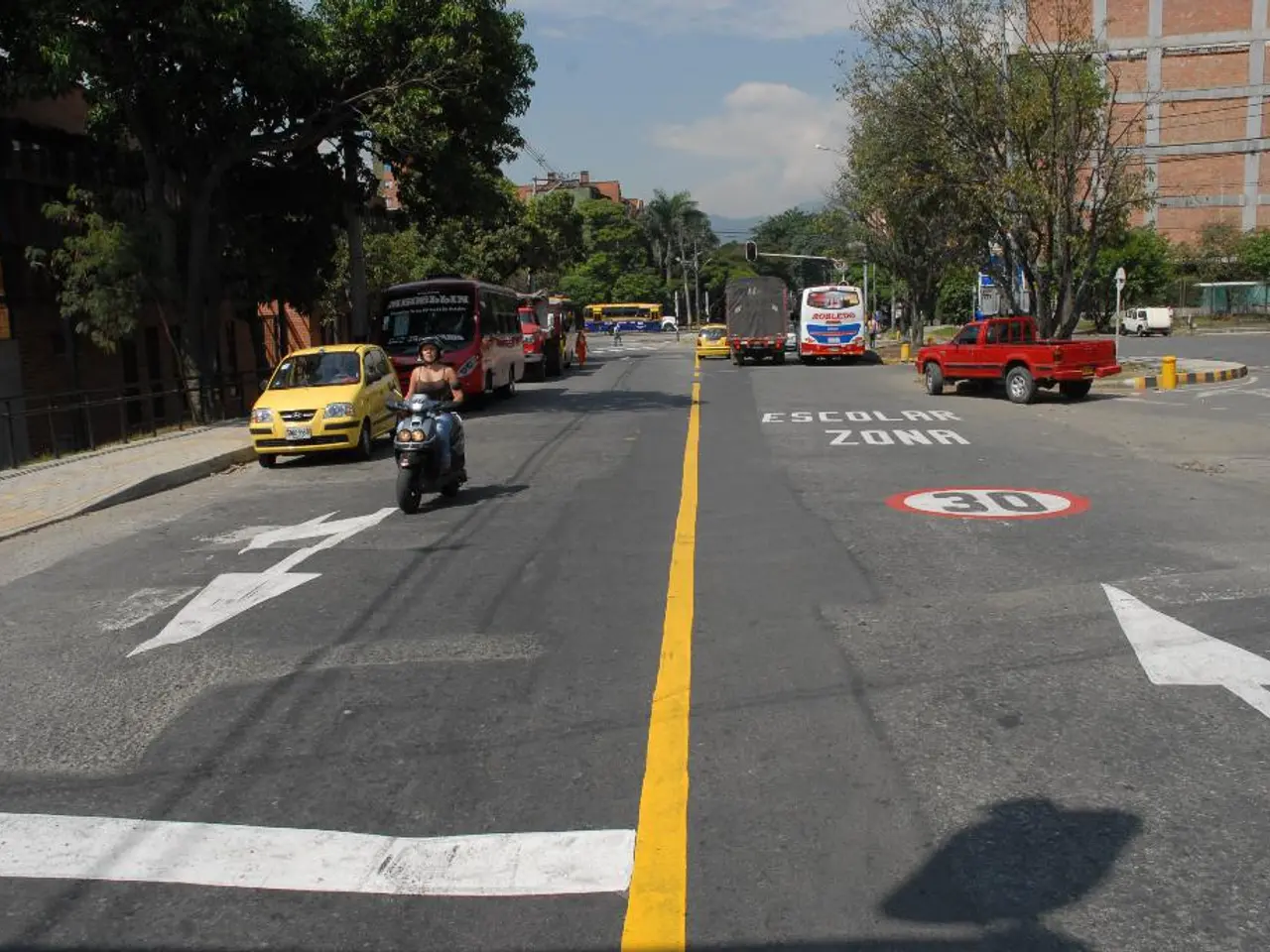EU Authorities Consent to Exclude 90% of Businesses from CBAM's Carbon-Related Import Tax
The European Commission's Omnibus I package, announced in February 2025, brings significant changes to the Carbon Border Adjustment Mechanism (CBAM), a policy aimed at preventing "carbon leakage" and equalising the price of carbon paid for EU products with that paid for products produced in other countries.
The new agreement, which is set to come into force in 2026, introduces a new threshold into the CBAM, exempting imports up to 50 tonnes per importer per year from CBAM rules. This replacement of the prior threshold exempting goods of negligible value primarily removes small and medium-sized enterprises (SMEs) and individuals, who import small or negligible quantities of goods, from CBAM compliance requirements.
The Omnibus I package aims to significantly reduce the sustainability reporting and regulatory burden on companies. The changes made to the CBAM include a simplification of rules, expansion of its scope, and strengthening of the regulation's anti-abuse provisions.
Under the new amendments, about 90% of companies will benefit from exemptions, while 99% of imported emissions will still be covered by CBAM. This simplification will reduce compliance burdens for most companies, improving CBAM’s practical feasibility without sacrificing coverage of carbon emissions from imports.
The expansion of the mechanism's scope signals the EU’s stronger commitment to prevent carbon leakage by addressing more imported goods tied to emissions beyond the current categories. A consultation process is ongoing until August 2025 to potentially extend the CBAM to goods downstream of the current scope.
The Omnibus I package also includes anti-circumvention measures designed to prevent practices aiming to avoid CBAM financial obligations, thus maintaining the mechanism’s integrity. These measures underline the EU’s intent to close loopholes and ensure that CBAM's financial impact cannot be easily avoided, thus upholding the EU’s climate policy objectives.
Adam Szłapka, Minister for the European Union of Poland, stated that the agreement reduces administrative burden for companies and boosts EU competitiveness. The new threshold primarily removes SMEs and individuals from CBAM compliance requirements, facilitating competitiveness and growth for businesses.
The changes require final endorsement from both the European Parliament and Council before entering into force. Once approved, the formal implementation steps include publication in the Official Journal and enforcement expected 20 days after, following the anticipated September 2025 endorsement.
In summary, the Omnibus I package critically updates CBAM to be simpler, broader in scope, and more robust against evasion, while keeping the EU's carbon leakage prevention target central to the policy design. The changes align the CBAM with other revised sustainability regulations, indicating a more coordinated EU approach to climate-related trade and corporate sustainability reporting in the near term.
- The expanded Carbon Border Adjustment Mechanism (CBAM), part of the European Commission's Omnibus I package, will not only cover 99% of imported emissions but also strengthen its regulations against abuse, thereby providing an alignment with other revised sustainability regulations in the field of environmental-science.
- The new agreement on CBAM, due to come into force in 2026, exempts small and medium-sized enterprises (SMEs) and individuals from compliance requirements, potentially improving the financial and operational efficiency of businesses and the overall business environment.




